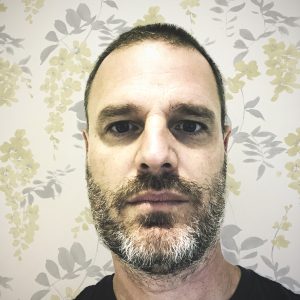Adrian Lander is the Co-Founder of Agnostic Agile, one of the largest, leading and influential global Agile movements. He is also an industry veteran with more than 27 years global experience in Executive and Team coaching, Agile delivery, software product management (amongst other things).
I hold Adrian in high regard and wanted to hear his thoughts on my last post titled Patterns of enterprise agile dysfunction. The following is what he had to say.
Adrian Lander on being Agile
I have been a programmer and software developer since the mid-70s.
I am also one of the few agile coaches who still develops software alongside my main work with a lot with senior management, where my biggest value has been for past years. I do not need to develop, but I want to. My heart is still with (agile) SW product development. It also helps me (still) understand deeply the work SW developers do nowadays.
Scrum often has done not much more than “transform” teams with an – often – experienced (SW) Project Manager to a team with an – often – inexperienced “Scrum Process Manager”, with all the usual promises mostly unfulfilled in the end. When there is more of a facilitation stance, there are also real risks and drawbacks with the often uninformed, unqualified, hands-off, “outside process coaching” focus.
After the Scrum honeymoon period is over, one can often see fallback and rarely continuous improvement in capability. The framework becomes the new plateau, the new “method prison”, the box through which too many involved start to see the world.
Inherently, Scrum is a wrapper and has nothing to do with SW development.
People who were doing (early) agile SW development before Scrum and/or have been exposed to other approaches like XP, Kanban, Lean SW Development etc regularly see that.
Should programmers care? From an agile business benefits perspective – where agile puts the first priority – yes. However, SW developers – I prefer that term – understandably may:
- think that it is not their responsibility, but for others to sort out (“let them do their job”)
- better than the command & control situation they got pulled into in the past
- as good as it gets in reality (“a job is a job”)
- less of a concern as they can work around and do their own thing
- all the same, whatever framework gets bought and pushed
- etc
But these are all situations of unfulfilled opportunities.
The reality is that we can create much better situations that are sustainable and further evolved.
But it takes time, structural change and commitment, harder to get skill sets all around, stamina and perseverance, vision & strategy, realism, etc. All the things rare to find in a fast-paced, superficial world of siloed commercial interests and existing, traditional power structures. In such contexts, the framework does not matter.
But even if we get the right context, the framework does not matter.
Practices do. Focus on the right WHAT and sustained development of the context (the organisation).
But the framework is the easy, tangible part, we can train in, certify in, sell and even hold as the standard to explain all failure “when not followed strictly or understood” etc.
By then, the consultant can move onto a new client, a new sale, another few years of drawing money and collecting “experience” etc – without ever having to go deep.
The SW developers, product management people, other business stakeholders and customers get the consequences of this, after investing time, effort, $, and trust. For them, it often is just another fad or “transformation”. And it will drive some to want to become an agile consultant (Scrum Master, coach, career trainer etc) – more money, more “status”, further away from where the pain is felt.
All this has nothing to do with agile, though. It’s The Industry that has been created. Changing the World of Work, it’s called. eg. through Scrum’s 13-page rule book, after a 2 day certification process and multiple choice exam.
– Adrian Lander, Co-Founder of Agnostic Agile
Thank you Adrian for taking the time to write about your experiences with Agile over the last 27 years. I’m grateful to learn from them and be able to reproduce them here for the benefit of others
If you are unhappy with your development team, they may need more detailed guidance.
Better software requirements can help with this.

|
Frank Ray Consulting. Software requirements for agile development teams, particularly remote, outsourced and offshore development teams working in financial services. |